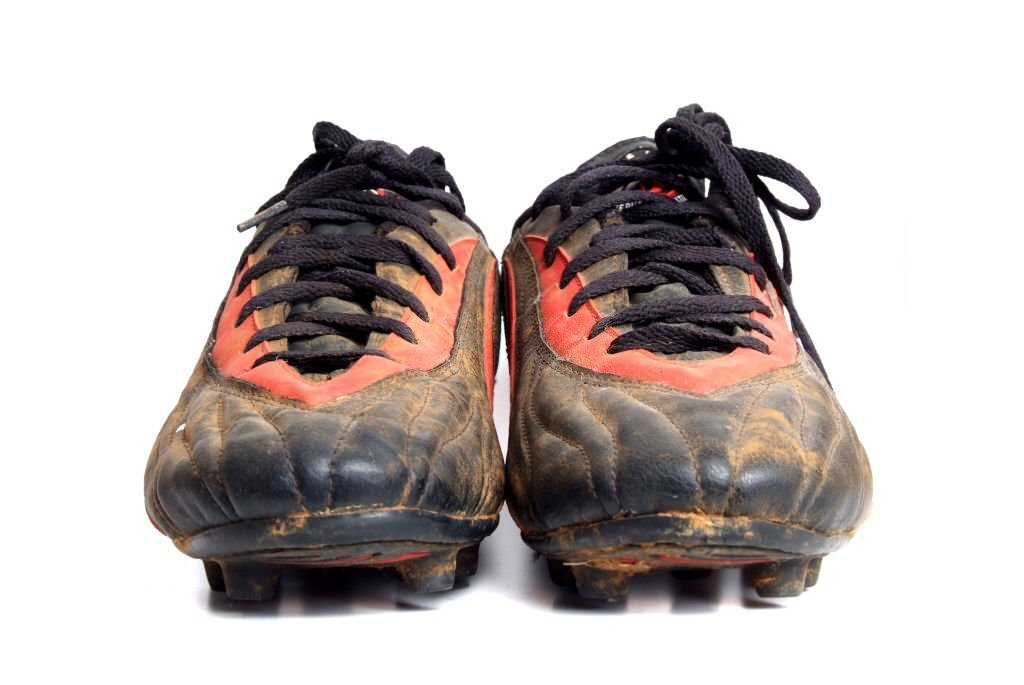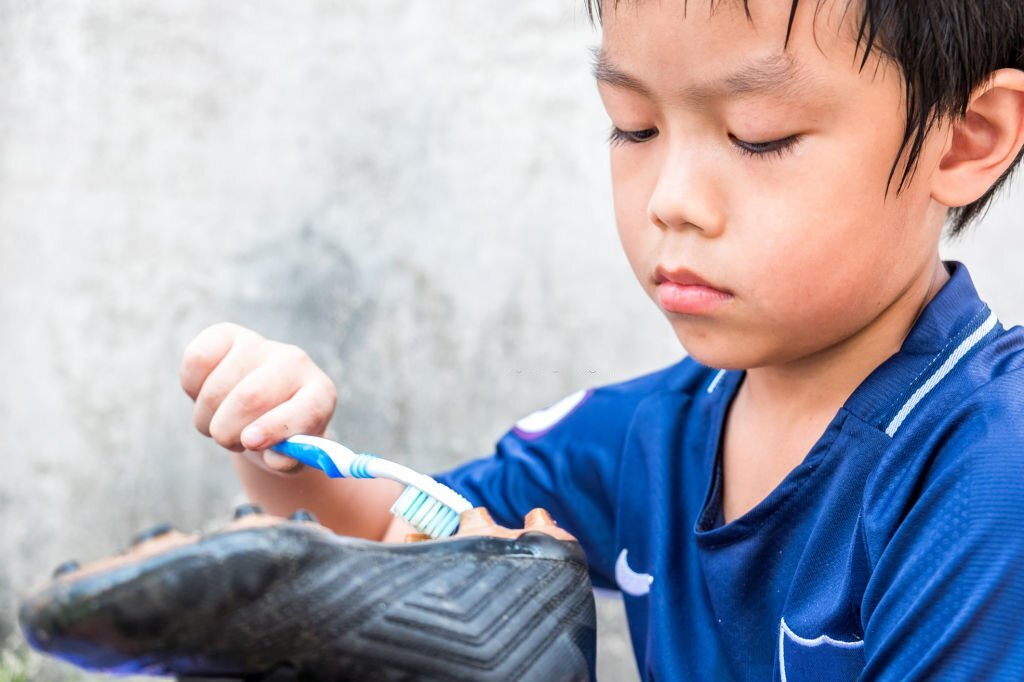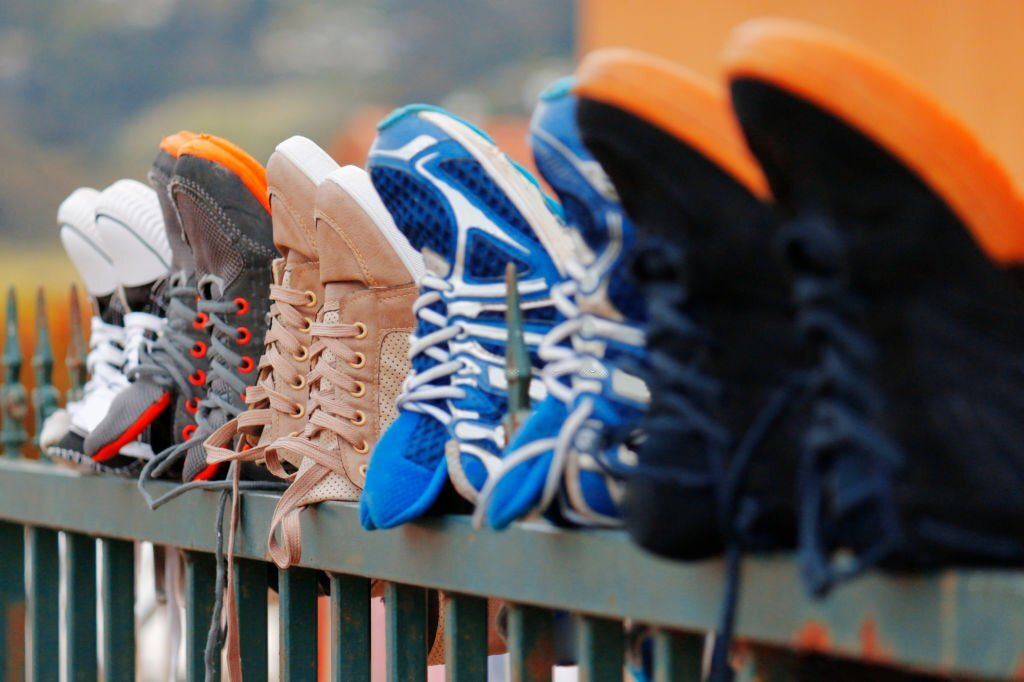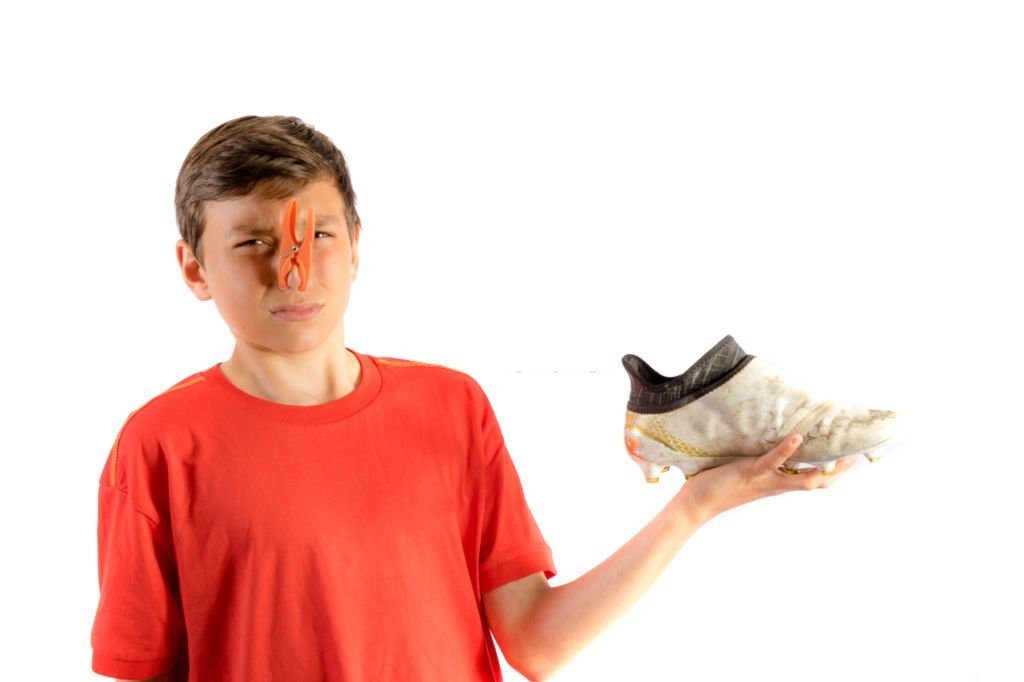
Stinky soccer cleats are one of the most common complaints among soccer players. Soccer cleats can become smelly due to several factors, such as sweat, dirt, and bacteria buildup. The odors can be embarrassing for athletes who wear them daily and can even interfere with their performance on the field. In this article, we’ll explain why and how to properly clean your stinky soccer cleats so you can continue performing at your best.
Why do Soccer Cleats Smell?
The main cause of that unpleasant smell from soccer cleats is sweat. Sweat itself has no odor, but when it combines with bacteria on the surface of your feet, it creates an unpleasant smell. The leather material used in many soccer cleats does not allow for good air circulation, making it hard for sweat to evaporate quickly. This causes more sweat to build up inside your shoes and accumulate over time, creating a breeding ground for smelly bacteria.
Another factor affecting the smell is the material used to make the cleat. Some materials, such as synthetic leather or mesh, offer little breathability, trapping moisture and allowing bacteria to flourish. This can result in an even stronger smell than regular leather.
Cleaning Solutions for Soccer Cleats

Regarding cleaning solutions, it’s important to know which one will work best for your shoe material – leather requires different treatment than synthetics, for example. Here are some tips on how to clean different types of material:
1. Leather:
Cleaning leather shoes require only warm water and a mild detergent solution such as dish soap or laundry detergent diluted in water (1 teaspoon per 1 cup). Gently scrub the area using a soft toothbrush, then rinse with warm water and leave them out in the air until they are completely dry before storing them in shoe bags.
Avoid using harsh chemicals like bleach, as these could damage the material over time.
2. Synthetic Leather/Mesh/Nylon:
These materials require special attention since they were treated improperly and could be irreversibly damaged. Start by dampening a cloth with hot water, then add a few drops of dishwashing liquid to it (1 drop per 1 cup).
Gently rub the area until the dirt comes off, then rinse with clean water and let them air-dry naturally before storing them away in shoe bags.
3. Rubber:
To clean rubber-soled shoes, use warm soapy water (1 teaspoon per 1 cup) mixed with white vinegar (2 teaspoons per 1 cup). Gently scrub with a soft brush, then rinse off with clean water and leave them out until they are completely dry before storing them in shoe bags.
4. Suede:
Cleaning suede shoes should always start by removing loose dirt using a soft brush or damp cloth first, then dabbing some white vinegar (2 teaspoons per 1 cup) onto an absorbent cloth, followed by wiping down the surface gently until the dirt comes off then rinsing off excess vinegar solution using another cloth soaked in clean water followed by letting them air dry naturally before storing away into shoe bags.
How to dry your Soccer Cleats overnight?

Once you finish cleaning your stinky cleats, the next step is to ensure they are properly dried. The best way to do this is by using a dehumidifier or placing them in direct sunlight for several hours. You can also place newspapers or paper towels inside the shoes to absorb moisture and speed up the process. If you need to dry your shoes overnight, here are a few methods:
1. Air Drying
If your soccer cleats are made with leather or synthetic leather, one of the best ways to dry them is by air drying them. First, remove the laces and any other removable parts, then stuff each boot with newspaper to absorb water from the inside.
Then set up a fan near the boots and allow it to blow directly onto them for several hours. This will speed up the drying process and allow them to be completely dry by morning.
2. Hair Dryer
Another option for drying your soccer cleats is using a hair dryer on its lowest setting. Start by removing laces and any removable parts, then direct the hairdryer’s heat onto all sides of each boot, making sure not to keep it in one spot too long. Otherwise, it could damage the material. Continue this process until all areas are evenly dried out.
3. Heat Lamp
A third method you can use to dry out your soccer cleats is a heat lamp or sunlight when available – although this method isn’t recommended as much since direct sunlight can cause fading or discoloration on some types of materials used for making soccer cleats. To use this method, place your boots in front of an open window or door where there’s sunlight entering for several hours, flipping them over occasionally, so both sides get equal exposure and attention.
4. Oven Drying
The fourth method to dry out your soccer cleats involves using an oven set at low temperatures (no higher than 200 degrees Fahrenheit). Place shoe insoles in a preheated oven and let sit for about 10 minutes before gently pulling out insoles and allowing them to cool down naturally (do not touch the hot surface!).
Repeat this process with both insoles before placing the shoes back on the feet and letting them cool off completely before wearing them again.
One or more of these methods should help you dry your soccer cleats overnight so you can wear them in time for practice or game day! Remember that no matter which technique you choose, always check the manufacturer’s instructions first, as some materials may require special care when attempting to dry them out quickly.
Disinfecting Soccer Cleats Smell
In addition to cleaning and drying your soccer cleats, it’s important to disinfect them to ensure bacteria buildup doesn’t occur again. This can be done with an anti-fungal spray bottle or wipes specifically designed for sports equipment. Spray the entire shoe inside and out, and let them sit for at least 10 minutes before wiping off any excess.
After cleaning your soccer cleats, you should ensure they’re completely dry before storing them in shoe bags. Storing wet shoes can result in mold growth as well as bad odors.
Preventing Smells from Soccer Cleats

While there is no way to prevent smells from soccer cleats completely, there are some measures you can take to lessen their effects:
1. Cleaning Regularly
One of the most effective ways to escape unpleasant odors in soccer cleats is to clean them regularly. This involves washing them on the outside and inside, where sweat, dirt, and bacteria can build up over time. Depending on how frequently they are used, this should be done every two weeks or so using warm water and a mild detergent.
It is important to ensure that the areas around straps, laces and other fastenings are given special attention, as these areas can trap foul smells more than others. After cleaning, it is best to stuff the insides with newspaper or some other material to help them dry out properly before putting them away again.
2. Using Odor-Absorbing Materials

Another good way to reduce bad odors in soccer cleats is by placing odor-absorbing materials inside them, such as baking soda or charcoal briquettes, after soccer games. These materials work by absorbing moisture as well as any unpleasant smells that may be present. For best results, changing these materials every two weeks or so depends on how much wear and tear your cleats have been subject to.
3. Choosing Appropriate Cleat for Weather Conditions
Finally, when selecting soccer cleats for different weather conditions, it is important to consider their ability to “breathe” well and allow air circulation around the feet. Opting for leather rather than synthetic uppers will often result in less odor buildup due to its natural ventilation properties being higher than those of synthetic materials. Additionally, wearing socks that wick away moisture will help reduce bad odors and keep feet comfortable during playtime.
Are you looking for indoor shoes for Flat feet: Must Read this Article
Conclusion
In conclusion, sweat and bacteria are the main culprits of smelly soccer cleats. The key to removing odors and dirt from them is regularly cleaning them with the right type of solutions, depending on the material they are made of. Proper maintenance, such as regular airing, deodorizers, and shoe bags, can help reduce odor buildup in your cleats. Taking these steps will ensure that your cleats are always smelling fresh!
We hope this guide was helpful in teaching you how to clean soccer cleats that stink and keep them smelling fresh.
FAQs
What is the best way to clean stinky soccer cleats?
The best way to clean stinky cleats is to remove any excess dirt and debris with a brush or vacuum. Then, you can use baking soda and water (or tea bags) to help absorb odors. Finally, air your cleats in fresh air for a few hours before storing them in a soccer bag.
How can I keep my cleats smelling fresh after playing soccer?
After each game or practice, it’s important to let your cleats dry naturally before storing them away. You can also spray disinfectant or deodorant on the insoles to help combat any lingering smells. Additionally, wear socks made of natural fabrics (like cotton or wool) and change into clean socks before each soccer game.
How often should I clean my soccer shoes?
It’s best to clean your soccer boots after each use. Additionally, you can apply powder or talcum to your feet before putting on socks to help absorb moisture and prevent odors from forming. Lastly, always store them away in shoe bags when not in use.
How do you get rid of smelly cleats?
The best way to get rid of smelly cleats is to remove any dirt or debris with a brush or vacuum. Then, you can use baking soda and water (or tea bags) to help absorb any odors. Finally, air your cleats in fresh air for a few hours before storing them in a soccer bag.
How do I clean the inside of my cleats?
To clean the inside of your cleats, start by spraying a disinfectant or deodorizer on the insoles. Then, use a soft-bristled brush to scrub away any dirt or debris that may be stuck in the crevices. You can also place activated charcoal in the shoe bag for extra odor absorption. Lastly, give your cleats plenty of time to air out before storing them away.
Can I wash soccer cleats in the washing machine?
No, washing soccer cleats in the washing machine is not recommended. Washing machines are typically too harsh for delicate materials used on cleats. They can cause damage to the structure or color of your shoes. It’s best to clean your cleats by hand with a brush and mild soap solution.
What is a natural remedy for stinky shoes?
Baking soda is a great natural remedy for stinky shoes. Mix equal parts baking soda and water (or tea bags) to create an odor-absorbing paste that you can apply directly to the insoles of your cleats. Let it sit for an hour before cleaning it off with a clean cloth. You can also keep activated charcoal in your shoe bag to help absorb odors.
How can I fix my smelly shoes without washing them?
If you don’t have time to wash your shoes, there are some alternative ways that you can help reduce odors. Spraying the insoles with a disinfectant or deodorizer is a great way to start. You can also use talcum powder or baking soda on your feet before putting on socks to absorb any moisture and prevent odor-causing bacteria from forming. Lastly, store your cleats in an environment with good air circulation, such as outside or near a window, for maximum freshness.


